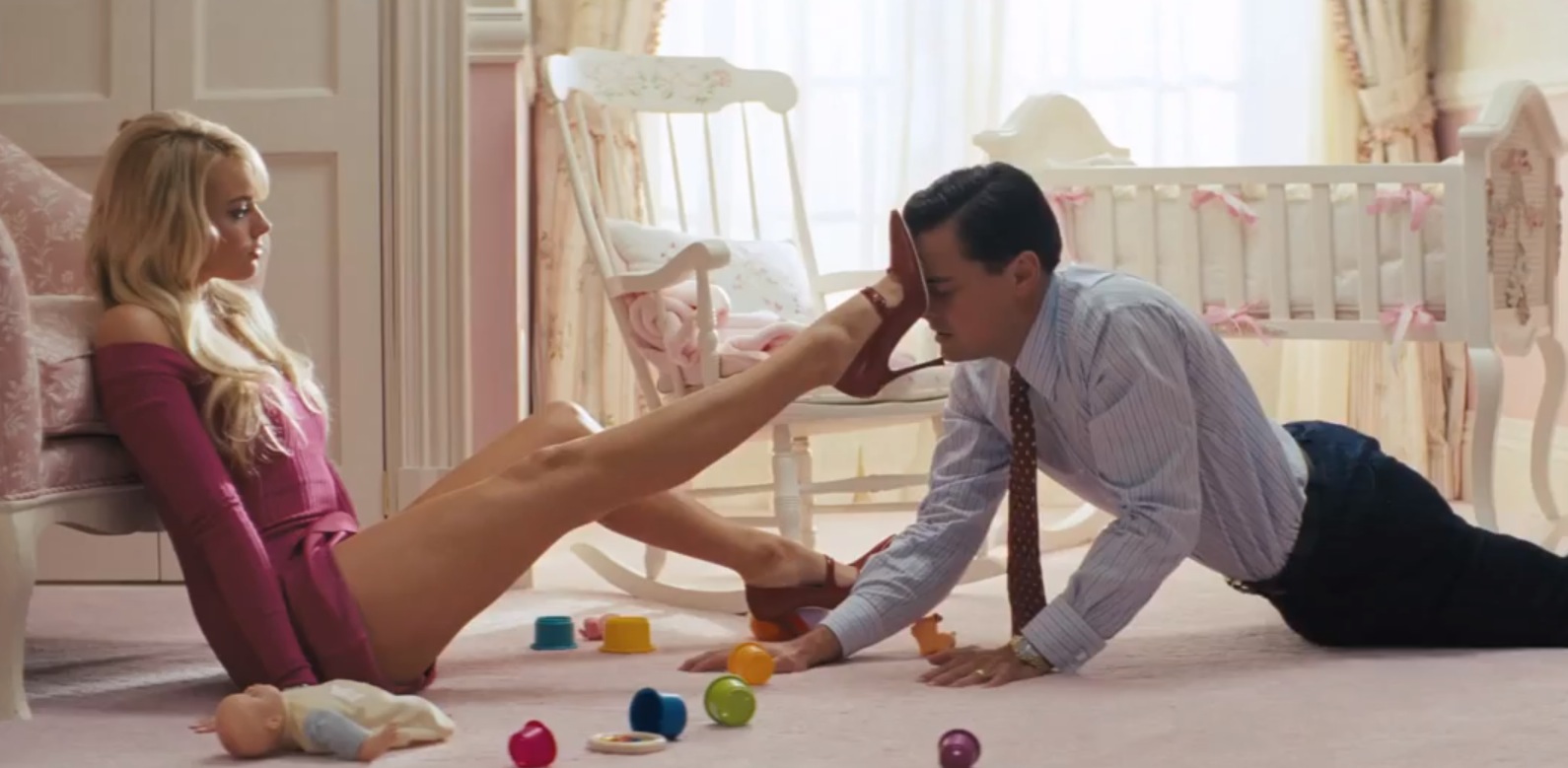Starring: Leonardo DiCaprio, Jonah Hill, Margot Robbie, Jon Bernthal
You'll realise the moment The Wolf of Wall Street begins that your life has been lacking a Martin Scorsese film for quite some time. In fact, you’ll find yourself counting your fingers to discover that The Departed - the last time Marty dealt an 18-certificate, y'know, Scorsese film - was unveiled in 2006 (not to detract from criminally overlooked Shutter Island or Hugo - his mesmerising modern classic for all ages). But with this film, it's fair to say he delivers debauchery in a way we have never seen the directing maestro dabble in before - yes, The Wolf of Wall Street is a sweary (with its record-breaking amount of F-bombs), drug-fuelled, sex-addled trip seen through the eyes of Jordan Belfort, a young businessman corrupted upon his rise to respected stockbroker in Wall Street. It almost goes without saying Belfort’s shoes are filled by Leonardo DiCaprio, an actor so at the top of his game, you’d be hard-pressed to imagine him not being there. After four films under the guidance of somebody who has undoubtedly left their imprint upon cinema as we know it, it’s taken this fifth outing to reach the seismic heights of, dare it be whispered, Taxi Driver.
Terence Winter (creator of HBO’s Boardwalk Empire) handles script duties, delivering a 3-hour doorstop of a screenplay, providing opportunity for opulence; Belfort -
based on the real-life counterpart - leads a team of disciples
who hang onto every word of his many power speeches, marries a trophy wife (rising talent Margot
Robbie - fresh from an appearance in About
Time - a long long way from Cornwall) and lives a life of luxury. Belfort's progress is tracked from wide-eyed Wall Street whippersnapper to wealthy titular wolf by way of his first boss, Mark Hanna - Matthew
McConaughey in an extended cameo near the film’s start which remains a solid highlight
by the end. Before too long, crime and corruption is as much a part of Belfort’s
day as are stocks and shares, assisted by his memorably bespectacled close
associate Donnie Azoff. Played by Jonah Hill, this progressive actor offers terrific support for Leo,
the two striking chemistry not entirely dissimilar to the Liotta’s and Pesci’s
of Scorsese’s back catalogue - none more so than in a scene involving the pair
scoffing pills, only for the effects to rain down on them with hilariously
slapstick results - a slacks-wearing DiCaprio especially impressing in a scene that re-defines his career all over again.
The entire cast embrace everything they're expected to do, making it tough to consider how this was once a film Hollywood didn't want itself tagged to. A who's-who cast of recognisable faces - Jon Bernthal (The Walking Dead), Kyle Chandler (Friday Night Lights), Jean Dujardin (The Artist) and Joanna Lumley (needs no introduction) all wade in when the scene requires - as well as cameos from fellow directing peers poking their noses in every now and again; Scorsese is as much a director's director as he is an actor's.
The entire cast embrace everything they're expected to do, making it tough to consider how this was once a film Hollywood didn't want itself tagged to. A who's-who cast of recognisable faces - Jon Bernthal (The Walking Dead), Kyle Chandler (Friday Night Lights), Jean Dujardin (The Artist) and Joanna Lumley (needs no introduction) all wade in when the scene requires - as well as cameos from fellow directing peers poking their noses in every now and again; Scorsese is as much a director's director as he is an actor's.
Part black comedy, part crime biopic, The Wolf of Wall
Street is a cautionary opus; to criticise the film for ignoring the detrimental effects these money-grabbing crooks had on their unsuspecting victims (as many have) is one hell of a patronising notion, not to mention one that misinterprets the film. More fool them. To not enjoy this film would be as criminal as the on-screen antics. Its cross-generational scope conveys the sense that it will be around forever... the kind of film watched over and over by University students on lazy Sundays, and parents once their kids have been sent to bed - one that completes the perfect Scorsese movie marathon alongside his esteemed classics. With this running time though, you'd best prepare for an all-nighter. Knock half an hour off, this'd be getting 5.
4.5/5
Readmore...


